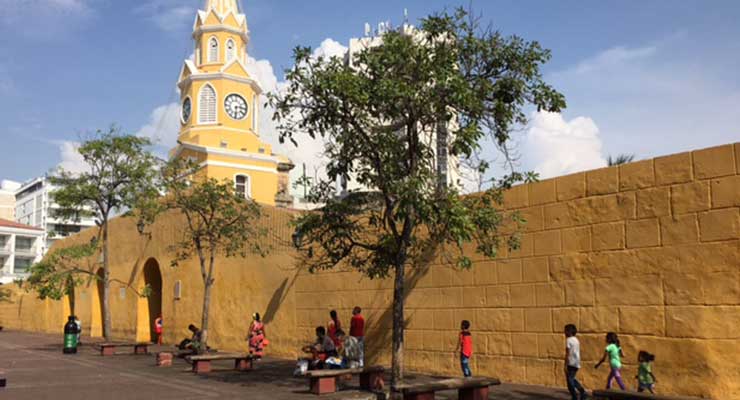
I was in Mexico last month, speaking at the San Miguel de Allende Writers’ Conference when Pope Francis arrived in the country. I heard and felt the excitement surrounding the Pope’s visit and his message—especially the one about indigenous people. Although he made headlines when, questioned about Donald Trump’s candidacy, he suggested that Christians should build bridges, not walls, much more newsworthy was the Pope’s apology to the indigenous people of Mexico and what it should mean to the rest of the world.
In a February 15 mass for the largely indigenous population of San Cristóbal de Las Casas Mexico, the Pope said that “we can no longer remain silent before one of the greatest environmental crises in world history. In this regard, you have much to teach us. Your peoples…know how to interact harmoniously with nature.” The mass was delivered in three indigenous languages: Tzeltal, Tzotzil and Chol.
Pope Francis went on to acknowledge that indigenous people have been excluded from society in a “systematic and organized way” and that people “intoxicated by power, money and market trends, have stolen your lands or contaminated them.” He suggested that we all examine our consciences and apologize, because today’s world needs indigenous people. He delivered a similar apology to the native people of North America last year.
As an Economic Hit Man several decades ago, I helped prop up a Death Economy based on wars or the threat of war, debt, and the rape of the Earth’s resources by corporations, banks, colluding governments, and the rich and powerful people tied to them. You can read more of my revelations in my new book, The New Confessions of an Economic Hit Man. This unsustainable economy depletes at ever increasing rates the very resources upon which it depends and at the same time poisons the air we breathe, the water we drink, and the foods we eat.
We must learn from the indigenous people of the world and move to a Life Economy. Their message is an essential one, on a global basis: We have to live sustainably.
Indigenous people know that they cannot destroy their native environment. Where would that leave them? Our native and immediate environment is the whole planet. And it’s the only one we’ve got, so there’s no Plan B. Indigenous people instinctively understand their relationship with the place where they live on a small basis—we can learn from them and apply that on a large scale.
Many of my earlier books explore what we can learn from indigenous people about environmental stewardship and how to help them keep their land. The Pachamama Alliance, of which I’m a co-founder, has been especially successful at raising funds to keep oil companies off indigenous lands and to protect the rain forests from encroaching industrialization, and in developing programs to raise consciousness about the importance of such activities in countries across the planet.
In addition, other spiritual leaders are sharing the same message as the Pope. The Dalai Lama often emphasizes the importance of caring for the environment: “It is our collective and individual responsibility to preserve and tend to the environment in which we all live.” When so many voices are raised in concern, it’s time to take action and dream a new dream that creates a new reality. This new reality should be of an economy that cleans up polluted waters, soil, and air; empowers hungry and starving people to feed themselves; develops transportation, communications, manufacturing, and energy systems that do not deplete resources; applies recycling and solar technologies; creates market, banking, and exchange systems that are community oriented and not based on debt currencies or war. In essence, it is a new reality based on a new way of dreaming and envisioning human societies, founded on courage and love rather than fear and hatred. Let us each then commit ourselves to creating the types of lifestyles and societies that indigenous people have advocated all along.
Leave a Reply